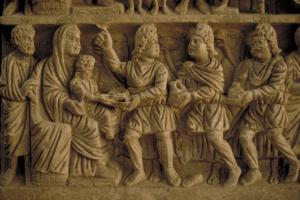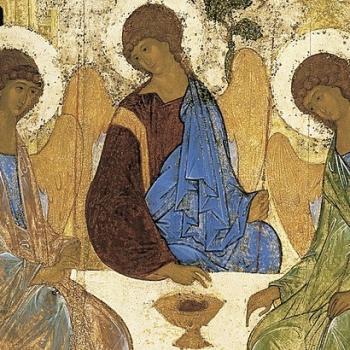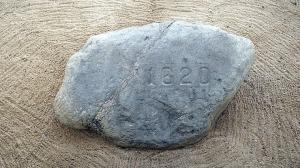
For those opening this link expecting to read about combs and watch chains, I’m sorry to mislead. It’s Epiphany, and today’s column is about the theological implications of the story in Matthew’s Gospel. Today I am thinking about the post-birth narrative of the Magi who brought gifts to the Christ child.
Risks of the Magi
Matthew’s second chapter is heavy with risk and threat. Recall the elements: the Magi come to celebrate the astrological sign of a new king’s birth. Herod contracts them as informers. They present their gifts in Mary and Joseph’s house and then change routes, deceiving Herod. He is furious and murders all the infants in the region of Bethlehem. (In Matthew, Joseph and Mary are from Bethlehem, and migrate to Nazareth to avoid the ongoing murders of Jewish children. In Luke, they are already living in Nazareth, and wind up in Bethlehem as a result of the census.)
The astrologers from the East are the catalysts for all this high Matthean drama. Herod hears of their inquiries and sniffs insurrection. He can’t, obviously, allow another King of the Jews to usurp his authority. Especially not during a tax cycle, as in Luke’s account, when Caesar is counting on him to send funds back to Rome.
So the Magi are taking so many risks. They risk a long journey west, carrying valuables through foreign lands.They risk open inquiry about a prophesied king. Further, they take the unimaginable risk of defying a puppet king with a Roman Legion at his back.
Why? This is the central question of the story, and the center of the theology of Epiphany. The Magi take all these risks simply so they can give their gifts.
Exchanges of Gifts
Gifts are central to the biblical story, beginning with the opening chapter of Genesis. God creates a world, you might say, as an economy for gift-exchange. The creation of the world is not, I mean, a contract between two existing partners, mutually beneficial for both. Rather, God gives a gift that has existence written into it: I gift you with life. Now creation can come to be, and receive itself as a gift from the gift-giving God.
Similarly, the covenant with Abraham is not a contract with a pre-existing people from which God hopes for some benefit. The election of Israel is not God’s program for divine self-improvement. Instead, God creates the people, separates them out as God once separated land and water, and does so as an unanticipated gift. I will make you a people. As a people, Abraham’s children can enjoy the blessing of God.
Importantly, though, the gifts of life and election are not a one-and-done divine gift. God does not drop off the gift and walk away, as if life and blessing were creation’s or Israel’s to do what we like with. Rather, the gift inaugurates an exchange. “I will bless you, and make your name great, so that you will be a blessing” (Gen 12:2). I freely chose you; now freely chose me, and freely chose to give gifts of blessing to one another.
Creatures are gifts who receive themselves as gift-givers from the Giver of all gifts. That means that our entire existence is made to take shape as exchanges of blessing with one another and with God.
Gifts of the Magi
The nativity story has this same shape. God chooses Mary as a repetition of God’s choice of Abraham. Her submission and hymn of praise return gifts to the one who made her. She spreads the blessing through her womb, to Elizabeth and Zechariah. She gives the covenanted gift of blessing.
But the world of Caesar and Herod is hostile to this generous economy of exchanged blessings. Matthew chapter two is a long version of a short acknowledgment in John’s gospel: “He came to what was his own, and his own people did not accept him” (1:11). In Matthew, creation has lost sight of itself as an economy of blessing. Christ comes as true gift, and the Magi respond with true gifts. And true gifts are a threat to an economy of subjugation, occupation, and taxation. The Magi enter Judea as agents of subversion in an political landscape resistant to blessing.
So they follow the star, and risk so much, in order to restore to creation its proper economy. The true King of the Jews is the Lord of all creation. So wise non-Jews bring gifts to the King whose gifts they themselves already are. They sing a Gentile Magnificat: We bring gifts to the Giver! Let our gold, frankincense, and myrrh stand as a promissory note to all nations. God has freely gifted us with blessing. Let us find ourselves anew as godlike givers of gift, of mutual blessing!
The exchange of gifts is our creation, and it is our salvation. It’s what we find when we come to the house where Mary lays her child. That’s what Epiphany is all about, Charlie Brown.











